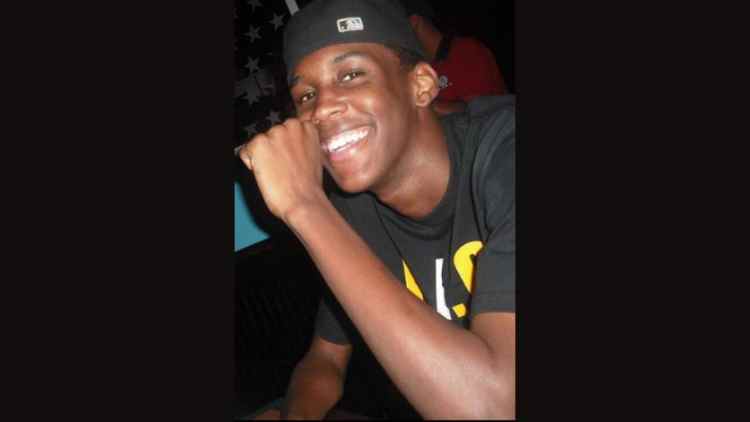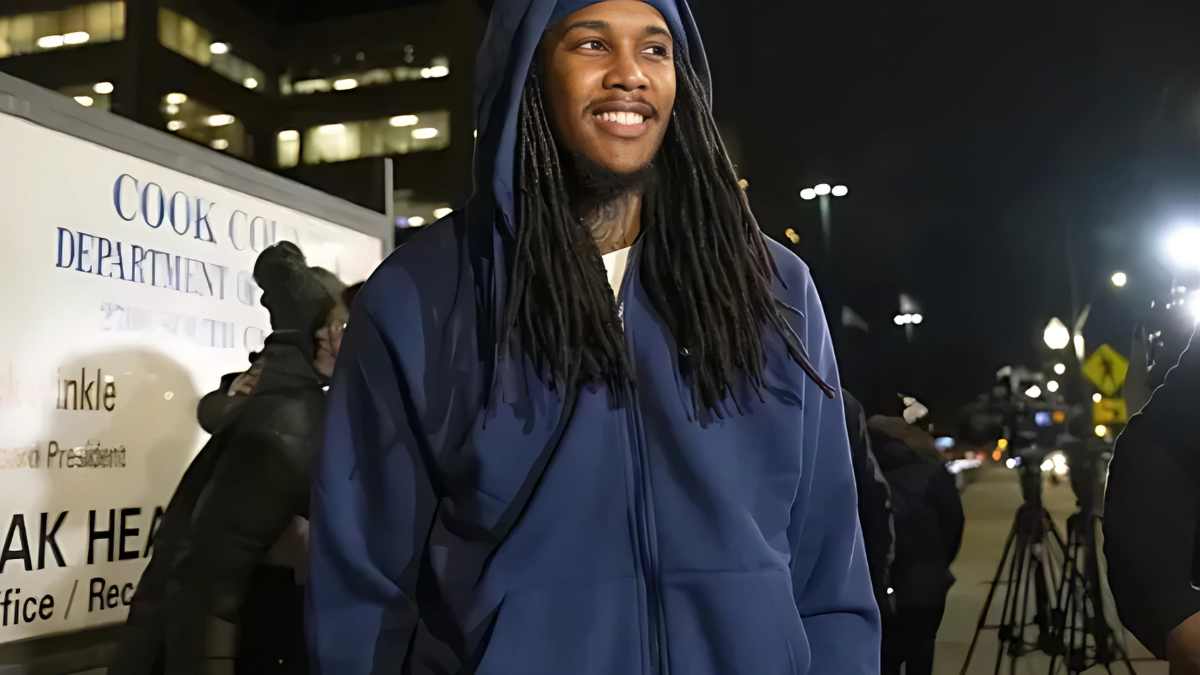Wrongfully convicted at 18 due to false testimony, Darien Harris endured years of abuse in prison. With the help of the Exoneration Project, he now seeks to hold the system accountable and assist others facing similar injustices.
By Ashleigh Fields
Darien Harris was 18 years old when Chicago police arrested him on homicide charges.
Due to the false testimony of a blind man, Harris, a first-time offender, was charged as the shooter in a murder case. Star witness Dexter Saffold lied about his vision impairment on the stand, resulting in Harris receiving a 76-year sentence.
“I feel like mentally and emotionally there are parts of myself that I can’t get back,” Harris said in an interview with The Defender.
Surviving Abuse and Isolation: Harris’s Harrowing Prison Experience

Darien Harris (Credit, Facebook).
Harris spoke about the abuse he endured while imprisoned in Cook County Jail.
He described inhumane treatment like being dragged away from security cameras for frequent beatings, a continuous lack of clean drinking water, punishment for requesting mental health services, mail tampering and long-term confinement in a cage for 24 hours a day and seven days a week. Harris says his stint was “horrendous.”
[perfectpullquote align=”full” bordertop=”false” cite=”” link=”” color=”” class=”” size=””]”You are disconnected from the whole world, no family, no friends, and you feel hopeless like nobody cares,” Harris reflected. [/perfectpullquote]
Last year, Harris regained his freedom after 12 years with the help of lawyer Lauren Myerscough-Mueller.
“The system is very much set up to uphold conviction and finality,” Myerscough-Mueller told the Defender. “It’s difficult to get [convictions] overturned and to get prosecutors to admit they were wrong.”
Legal Battle and Freedom: The Role of the Exoneration Project in Harris’s Release
Myerscough-Mueller was hired by the Exoneration Project, a local non-profit whose mission is to end wrongful imprisonment.
“There’s no constitutional right to a lawyer on post-conviction. There is a statutory right once you reach the second stage, but there are limitations within public defender offices and the number of people assigned to those cases,” she explained.
Despite the harsh reality, Harris has done his best to move on productively with his life. While in prison, he managed to get his GED and work a job. However, Myerscough-Mueller still says the effects on his life were traumatizing.
[perfectpullquote align=”full” bordertop=”false” cite=”” link=”” color=”” class=”” size=””]”He’s been through a lot while he was in prison and since he’s been out. There’s a lot that goes into reentry, and he had very formative years stolen from him in a place where he couldn’t get education, jobs, and he’s been starting from scratch without money and training,” Myerscough-Mueller shared.[/perfectpullquote]
However, Harris is determined to overcome defeat. After initially seeking to retry him for unexplained reasons, prosecutors dropped all charges. A civil lawsuit against the county was filed in April.
Harris is awaiting a certificate of innocence—a proceeding being reviewed by Judge Erica Reddick.
Evidence, along with Harris’ testimony, confirmed that he was not to blame for the death of Rondell Moore. The driver, in this case, admitted to lying on the stand due to threats from the police. The store owner confirmed that Harris was not the shooter in a lineup, and documents show Saffold, the key witness, has filed multiple federal records self-identifying as blind, dating back to 2002.
“Harris didn’t understand why the state’s attorney’s office had this information and medical records proving the eyewitness was blind and were still keeping him in prison. He couldn’t understand why CIU (Conviction Integrity Unit) didn’t act,” Myerscough-Mueller said. “Police pressure to close cases still exists, which can and unfortunately does result in wrongful convictions.”
The state’s attorney’s office and Myerscough-Mueller declined to comment on whether Harris has been issued an apology or if any other reconciliation efforts have been made toward him.
Fighting for Change: Harris’s Efforts to Hold Authorities Accountable
Cook County recorded 124 overturned convictions in 2022. Last year, the state of Illinois exonerated 30 people. According to the National Registry of Exonerations (NRE) annual report, that ranked the highest by over half.
Myerscough-Mueller agreed that it’s part of a larger problem for Black boys and men.
“Part of it is that the police and the prosecutors don’t listen. They don’t believe these young men when they say they didn’t do it or couldn’t have done it,” she said. “Many assume everyone is in a gang while actual perpetrators are still on the street wreaking havoc and possibly killing other people.”
Harris agreed, stating that police use torture, coercion and starvation tactics to get false confessions, which leads to more closed cases.
“There’s no accountability for the state attorney’s office, the correction officers or the system,” said Harris. “When will the laws change so they can be held accountable for their actions?”
Harris is now helping to review similar cases and connect prisoners with lawyers. He asks those interested in contacting him to reach out through his Instagram, @kingchucky_freedareal.



